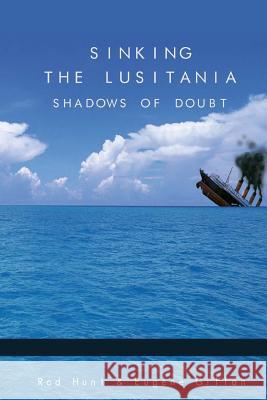Sinking the Lusitania: Shadows of Doubt » książka
Sinking the Lusitania: Shadows of Doubt
ISBN-13: 9781508805946 / Angielski / Miękka / 2015 / 336 str.
Sinking the Lusitania is a Centenary year book which revisits the myriad questions surrounding the fatal voyage and the impact it had on the western world. The old rules of war sank with the Cunard liner on 7 May 1915. The bronze torpedo from the German submarine U-20 penetrated the hull and the secondary explosion ripped the bottom from the majestic ship and 1,200 lives were lost ten miles off the Old Head of Kinsale on Ireland's southern shores. What contraband war materials aboard could have created such horrendous destruction? The new rule was that there were now no rules. Charges were made that the Lusitania was a floating arsenal, that passengers acted as a protective shield and that civilians were unknowingly used as guardian angels against being attacked Sinking the Lusitania - Shadows of Doubt presents the Great War as the first war in history to involve millions of human beings being slaughtered with the prize of winning being world-wide commercial markets. Propaganda helped determine policy and conspiracy was the fabric covering all. In the turmoil of war, huge and costly mistakes were made and the modernized propaganda media of Great Britain made Germany's counter-efforts an exercise in futility. Efforts to mediate the conflict by President Woodrow Wilson were equally futile and caste aside. Blunders in land and sea battles are brought forth in the Gallipoli Campaign for which Winston Churchill drew the blame. British Intelligence under Capt Reginald Hall knew the location of every ship and submarine the German Navy had sent to the south coast of Ireland, yet the Lusitania traveled unescorted into the most dangerous waters of Great Britain. Was she set up to be damaged or sunk? Would this bring the United States into the war on Britain's side and keep revolutionary Ireland tethered to Britain's side? The shadows of doubt remain.
Zawartość książki może nie spełniać oczekiwań – reklamacje nie obejmują treści, która mogła nie być redakcyjnie ani merytorycznie opracowana.











